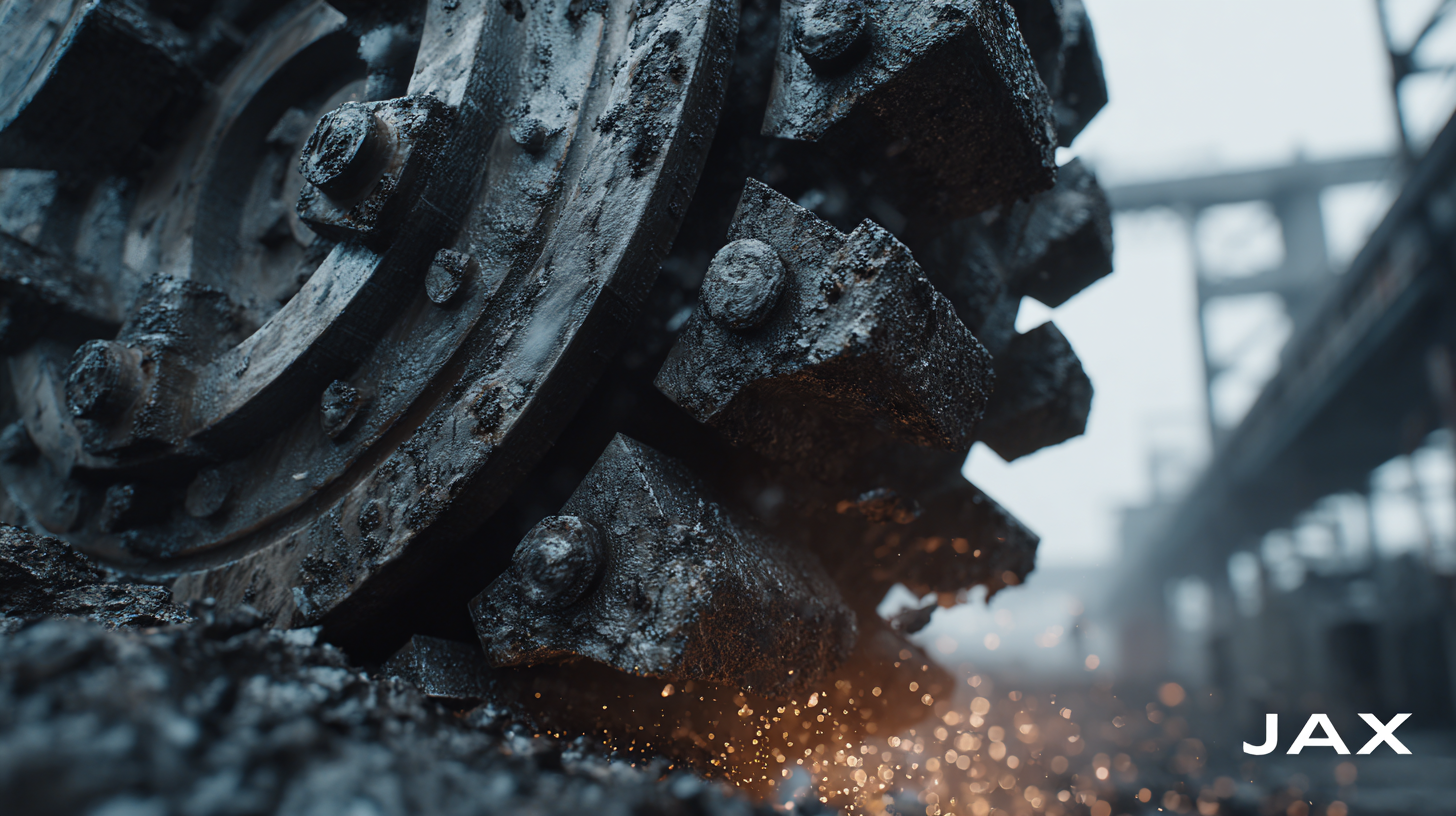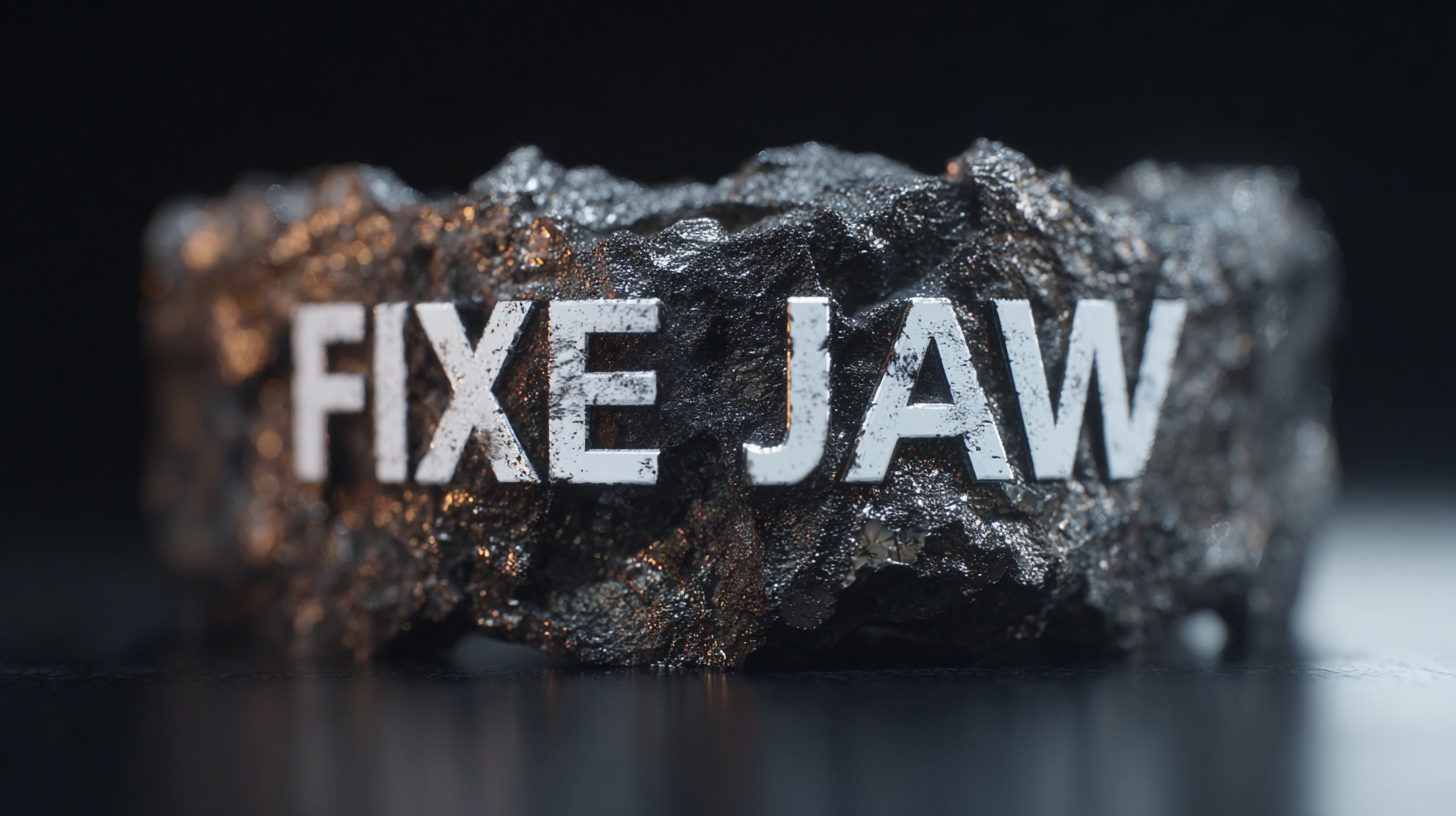 In the realm of modern crushing applications, the importance of selecting the right equipment cannot be overstated. A recent industry report by XYZ Research indicates that the global crushing equipment market is projected to reach $XX billion by 2025, with an increasing emphasis on durability and efficiency.
Among the critical components of these systems, the Fixed Jaw plays a pivotal role in achieving optimal performance and reliability. This sturdy element not only enhances the crushing process but also dramatically influences the overall productivity of the operation. Studies show that using high-quality Fixed Jaws can lead to a 15% increase in efficiency and 20% reduction in wear and tear, thereby significantly impacting operational costs. As companies strive to optimize their crushing processes, understanding the advantages of the best Fixed Jaw becomes essential for maintaining a competitive edge in the ever-evolving market landscape.
In the realm of modern crushing applications, the importance of selecting the right equipment cannot be overstated. A recent industry report by XYZ Research indicates that the global crushing equipment market is projected to reach $XX billion by 2025, with an increasing emphasis on durability and efficiency.
Among the critical components of these systems, the Fixed Jaw plays a pivotal role in achieving optimal performance and reliability. This sturdy element not only enhances the crushing process but also dramatically influences the overall productivity of the operation. Studies show that using high-quality Fixed Jaws can lead to a 15% increase in efficiency and 20% reduction in wear and tear, thereby significantly impacting operational costs. As companies strive to optimize their crushing processes, understanding the advantages of the best Fixed Jaw becomes essential for maintaining a competitive edge in the ever-evolving market landscape.
Fixed jaws play a critical role in modern crushing applications, serving as the foundational component for achieving efficient material size reduction. These stationary surfaces are designed to interact closely with the movable jaw, creating a compressive force that crushes the material between them. The configuration and material of fixed jaws significantly impact performance, as they need to withstand high levels of stress while maintaining sharpness and structural integrity.
One primary advantage of well-designed fixed jaws is their ability to provide consistent and uniform crushing results. By optimizing the angle and spacing, operators can achieve a desired output size, reducing the need for further processing. Additionally, advancements in materials technology have allowed for the production of fixed jaws that are more resilient to wear and tear, extending their service life and reducing maintenance costs. Consequently, investing in high-quality fixed jaws can lead to significant operational efficiencies, making them indispensable in today's crushing operations.

In modern material processing, fixed jaws play a pivotal role in enhancing the efficiency and effectiveness of crushing applications. One of the key benefits they offer is their unparalleled stability during operation. Fixed jaws are designed to withstand substantial forces, allowing for consistent crushing performance. This stability not only extends the lifespan of the equipment but also reduces the frequency of maintenance, making them a cost-effective choice for many industries.
When choosing fixed jaws, it's essential to consider the material they are constructed from. Options like high manganese steel provide excellent wear resistance and are ideal for handling abrasive materials. Additionally, ensure that the jaw design complements your specific crushing needs, maximizing productivity.
Tip: Regular inspections of fixed jaws can prevent unexpected downtimes. Identifying any wear early allows for timely replacements, thus maintaining continuous operation. Also, consider training your operators on best practices for loading materials, as proper techniques can enhance the longevity of your fixed jaws significantly.
When it comes to modern crushing applications, the choice of materials and design for fixed jaws is crucial. The fixed jaw plays a pivotal role in the efficiency and effectiveness of the crushing process, impacting the size reduction and quality of the output material. Selecting the right fixed jaw involves assessing various factors, including the type of material being crushed, the anticipated production volume, and the desired end-product specifications.

Materials such as high manganese steel or alloyed steels offer superior wear resistance and durability, which are essential for handling abrasive materials. Additionally, the design of the fixed jaw should complement the specific type of crusher being used. Factors such as cheek plate angle, jaw profile, and the distance between jaws can significantly influence the crushing action and efficiency. By carefully evaluating these elements, operators can ensure optimal performance and longevity of their equipment, ultimately leading to increased productivity and reduced operational costs in their crushing operations.
In modern crushing applications, the fixed jaw plays a crucial role in ensuring efficient and effective operations. To optimize the performance of fixed jaws, regular maintenance is essential. One key maintenance tip is to conduct routine inspections to identify wear patterns or damage early on. By monitoring the condition of the fixed jaw, operators can proactively address issues, minimizing downtime and preventing costly repairs. Checking for proper alignment and ensuring that all components are secure can significantly enhance the performance and lifespan of the equipment.
Another vital aspect of maintenance involves lubrication and cleaning. Keeping the fixed jaw and its associated components clean from debris and contaminants allows for smoother operation and reduces friction. Regular lubrication of pivot points and bearings ensures that the fixed jaw operates efficiently, enhancing its crushing capabilities. Additionally, operators should replace worn or damaged parts promptly to maintain optimal jaw performance. By focusing on these maintenance tips, operators can ensure that their fixed jaws continue to deliver outstanding results in their crushing processes.
| Parameter | Value | Impact on Performance | Maintenance Tips |
|---|---|---|---|
| Material Quality | High Carbon Steel | Increased durability and wear resistance | Regular inspections and replace as needed |
| Jaw Profile Design | Optimized for Material Size | Improves product size uniformity | Monitor wear patterns to adjust design |
| Jaw Width | 30 inches | Enhanced crushing capacity | Ensure proper alignment and secure fastening |
| Operational Speed | 150 RPM | Maximizes throughput | Calibrate motors to maintain speed |
| Lubrication Frequency | Every 50 hours of operation | Reduces friction and increases lifespan | Use high-quality lubricants |
In the world of modern crushing applications, selecting the right components is crucial for efficiency and performance. Fixed jaws, often considered a fundamental part of the crushing mechanism, present several advantages when compared to other crushing components like moving jaws or impactors. Their design allows for a consistent crushing action, providing a stable surface for material to be processed effectively. Unlike moving jaws that can introduce variability in pressure and space, fixed jaws maintain a fixed gape, enabling uniformity in output size and reducing the risks of blockages.
Moreover, fixed jaws typically offer greater longevity and durability. As they endure constant stress from the crushing process, their robust construction means they are less likely to wear out quickly compared to parts that experience more dynamic movements. This durability not only extends the lifespan of the equipment but also minimizes maintenance costs and downtime. Additionally, fixed jaws can be tailored with specialized materials and surface treatments, enhancing their ability to process various materials while maintaining peak performance. In scenarios where reliability and efficiency are paramount, fixed jaws prove to be an indispensable choice in crushing operations.



